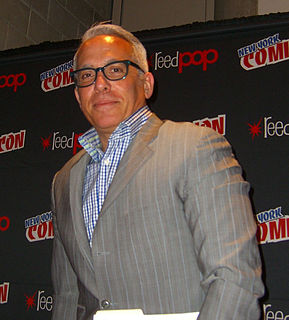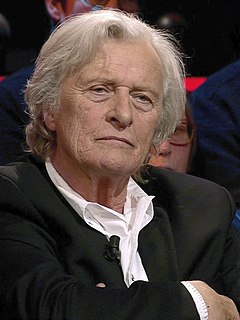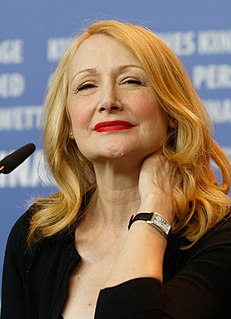A Quote by Henry Lloyd-Hughes
I can think of a handful of auditions where the director has literally said, "That is the opposite of what I think." But it's really good to be honest and have that dialogue. I don't think you should be criticized though.
Related Quotes
[Being judge] is about being honest and giving everybody a fair shot and telling them what you think. Sometimes it's good and sometimes it isn't. It's more important to be honest than say things to make people feel better. I don't think you have to be rude, but I think you have to be honest. But I think it's really important to be specific: Here's what you did that was great and why. And here's what you did that wasn't great and why.
So, most of it was done over the phone. But one of the first things I did as a director, because it's one of the first things you should do, even though most don't, is to ask good actors who they think is right for the part. They know better than anybody. But without missing a beat Maggie said Pauline Collins. I didn't know Pauline because I hadn't seen Shirley Valentine, but then I saw this thing that she did with Woody Allen [You Will Meet A Tall Dark Stranger], in which she was wonderful as a psychic, and I said to her on the phone: "The dialogue seemed improvised."
It's true that I don't think I'd be a good director. If I were a director, I'd try to hire the best people I could and then leave them alone. I don't know much about cameras or lighting, so I'd make sure that I had a really good cameraman who understood lenses and lighting, and I say to him, "This is the scene we have to shoot and this is what I think it should be, you go do it." Same with actors. But really, very good directors who know everything do basically the same thing. They hire you and then they leave you alone.
Snow Cake is a lovely film. Really proud of that. We shot it in 21 days. I thought Sigourney was amazing in it. And very, very accurate. I think there was some element that thought she had pushed it too far. But not at all when you do the amount of homework she had done and spent the amount of time she did with adult autistics. She was right on the money. And I think Marc Evans is a terrific director. He's a sweet, open, honest man and a really good director of actors.
My agent called me and said, they watched you do Chopped Champions and they thought you'd be good for this competition. What do you think? And I said, well, what do you think? He said he thought it would be great and I said let's do it. When you decide to do this, you don't really think that you're going to win it. I thought it would be fun, good to test my mettle; games are fun like that. Why not? I'll try it.
I think one third of my work is with first-time directors because I think I should, you know? Really, the difference between a first-time director and a second- or third-time director - I mean there's no director who makes enough movies anyway - but if they're talented, they have it. And there is no movie that is perfect.
Your actors need to trust you as a director, but normally, I think you just need to have an open communication between the actors and the director. I think the director needs to really paint his or her vision to the cast and let them know the kind of mood that he or she is making. I think that's very important.
If you polled the military in Afghanistan as to how many think we should be there or not, the numbers would probably be similar to what the U.S. population believes. That's not because they're watching the news. But, hey, they are out there risking their lives. No one likes to be criticized and it really sucks to be criticized when you're risking your life.
I will say from the outset, I think if you're great, you're great from the very beginning. And because I do think it is innate and I do think it is a gift you just have, and I don't think you can - you can hone the skills of a director, but sadly, I do think that you are born a great director. I think it's just in you and it's something that is deep in you. But, I find it can be difficult working with first-time directors, but it's also moving.

































